The {BGGM} an {blsmeta} R packages are under active development.
Creator
BGGM: Bayesian Gaussian Graphical Models
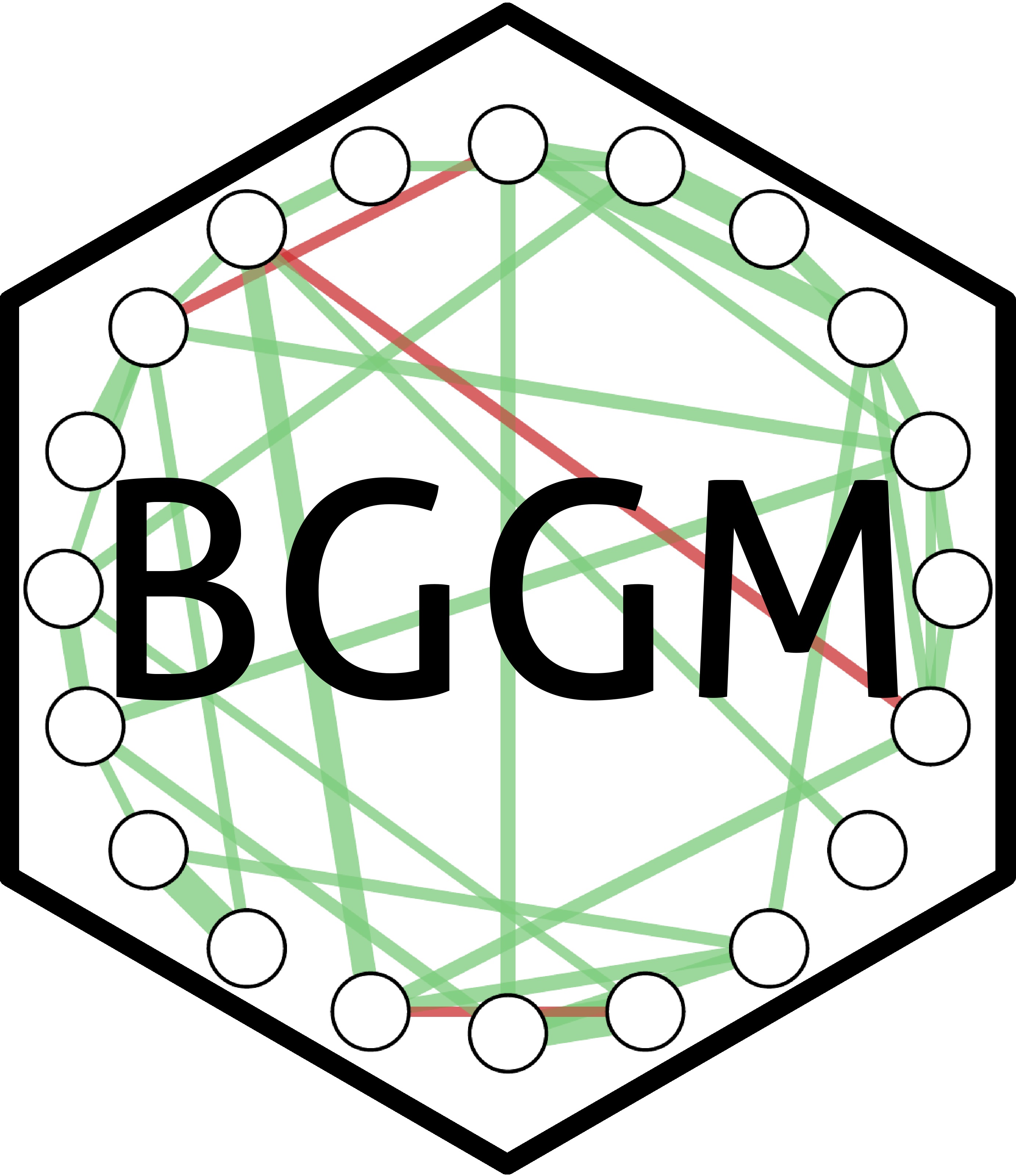
The {BGGM} R package is a collection of tools for making Bayesian inference in Gaussian graphical models. The methods are organized around two general approaches for Bayesian inference: (1) estimation and (2) hypothesis testing. The computationally intensive tasks (e.g., custom MCMC samplers) are written in c++. The Bayes factors are computed with the R package BFpack (see below). There is full support for continuous, binary, ordinal, and mixed data (via a Gaussian copula graphical model).
blsmeta: Bayesian Location-Scale Meta-Analysis
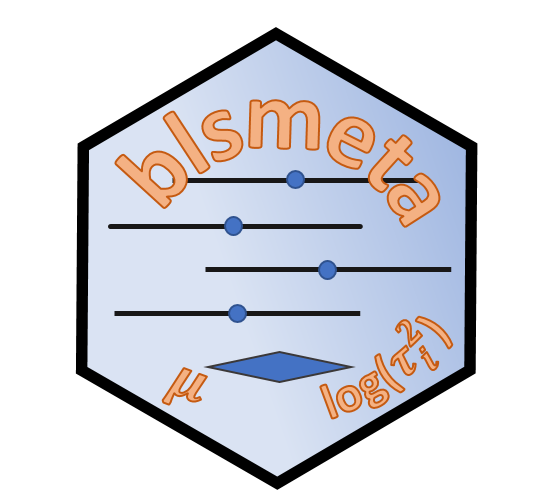
The goal of {blsmeta} is to provide a user-friendly interface for Bayesian meta-analysis, including fixed-effects, two-level, and three-level (for dependent effect sizes) random-effects models. Additionally, a key feature of {blsmeta} is “scale” modeling, which allows for predicting the variance components with moderators (e.g., perhaps between-study variance is not constant across studies). As a result, heterogeneity statistics and prediction intervals are then a function of those same moderators, thereby opening the door to better understanding heterogeneity in meta-analysis.
GGMnonreg: Non-regularized Gaussian Graphical Models

The goal of {GGMnonreg} is to estimate non-regularized graphical models. Note that the title is a bit of a misnomer, in that Ising and mixed graphical models are also supported. Graphical modeling is quite common in fields with wide data, that is, when there are more variables than observations. Accordingly, many regularization-based approaches have been developed for those kinds of data. There are key drawbacks of regularization when the goal is inference, including, but not limited to, the fact that obtaining a valid measure of parameter uncertainty is very (very) difficult. {GGMnonreg}, on the other hand, was specifically built for low-dimensional data (e.g., those common to psychological networks).
GGMncv: Gaussian Graphical Models with Non-Convex Penalties
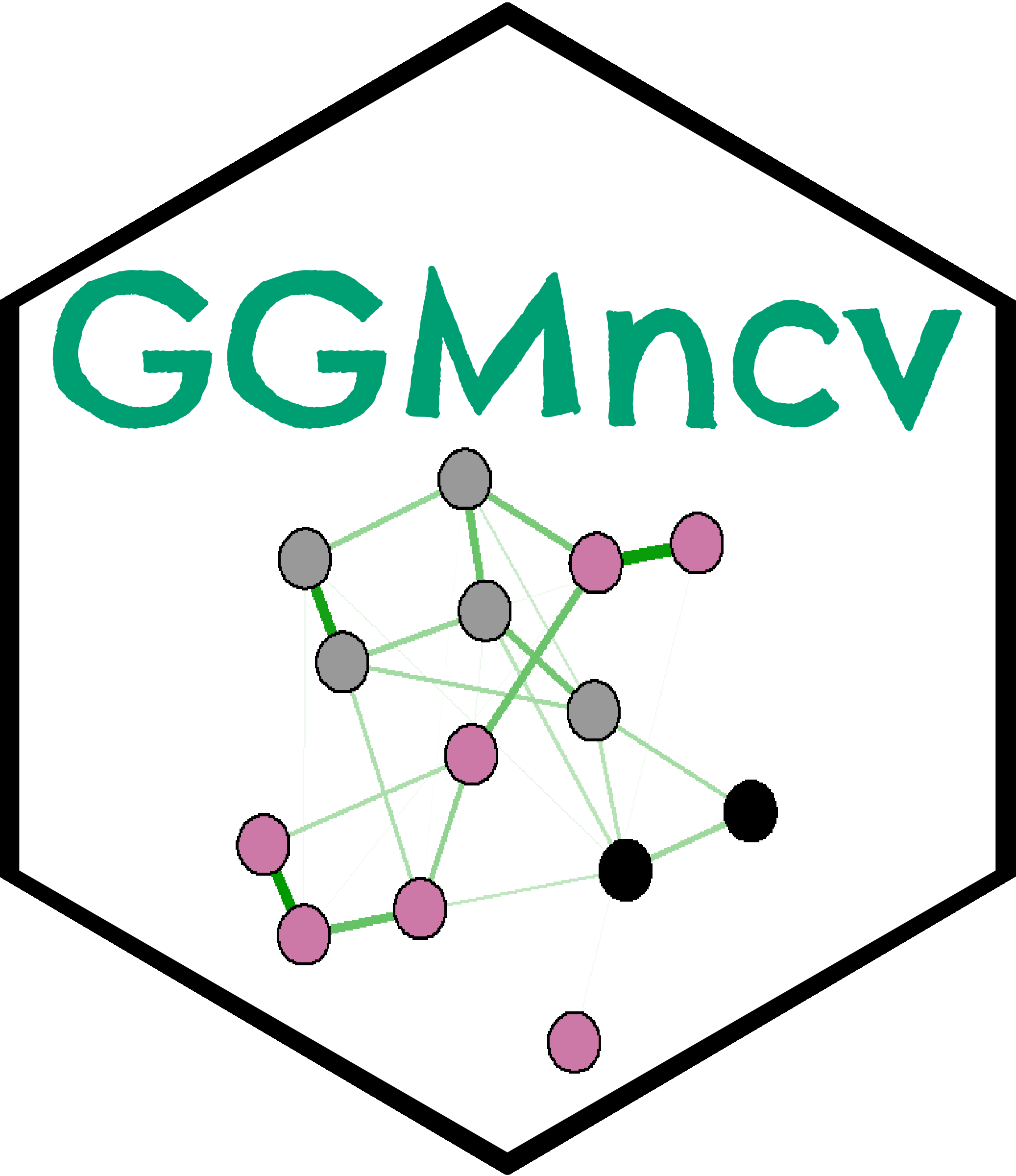
The primary goal of {GGMncv} is to provide non-convex penalties for estimating Gaussian graphical models. These are known to overcome the various limitations of lasso (least absolute shrinkage “screening” operator), including inconsistent model selection, biased estimates, and a high false positive rate. An additional goal of {GGMncv} is to provide methods for making statistical inference in regularized Gaussian graphical models. This is accomplished with the de-sparsified graphical lasso estimator.
vICC: Varying Intraclass Correlation Coefficients
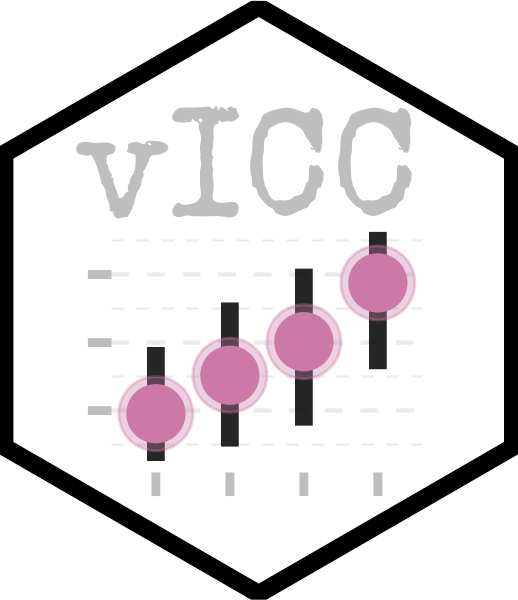
The goal of {vICC} is to compute varying intraclass correlation coefficients (ICC) in a one-way random effects model. Often computing an ICC is the first step when fitting a mixed-effects model that results in merely one value that is assumed to apply to each group (e.g., person, school, etc.). The underlying assumption is a common within-group variance, whereas, in {vICC}, a random-effects model is fitted to the residual variance, thereby permitting group-level ICCs. When subjects are the grouping variable, this is akin to investigating individual differences in the ICC.
IRCcheck: Irrepresentable Condition Check

The goal of {IRCcheck} is to check the irrepresentable condition in both L1-regularized regression and Gaussian graphical models. At its crux, the IRC states that the important and unimportant variables cannot be correlated, at least not all that much (total irrelevant covariance below 1). L1-regularization requires the IRC for consistent model selection, that is, with more data, the true model is recovered. The IRC cannot be checked in real data. The primary use for this package is to explore the IRC in a true model that may be used in a simulation study.
BBcor: Bayesian Bootstrapping Correlations
The goal of {BBcor} is to provide an efficient way to obtain samples from the posterior distribution of various correlation coefficients, including: (1) Pearson, (2) Spearman, (3) Gaussian rank, (4) Kendall, (5) Blomqvist, and (6) polychoric.
Contributor
BFpack: Flexible Bayes Factor Testing of Scientific Expectations

The R package {BFpack} contains a set of functions for exploratory hypothesis testing (e.g., equal vs negative vs positive) and confirmatory hypothesis testing (with equality and/or order constraints) using Bayes factors and posterior probabilities under commonly used statistical models, including (but not limited to) Bayesian t testing, (M)AN(C)OVA, multivariate/univariate linear regression, correlation analysis, multilevel analysis, or generalized linear models (e.g., logistic regression).
bayeslincom: Linear Combinations of Bayesian Posterior Samples
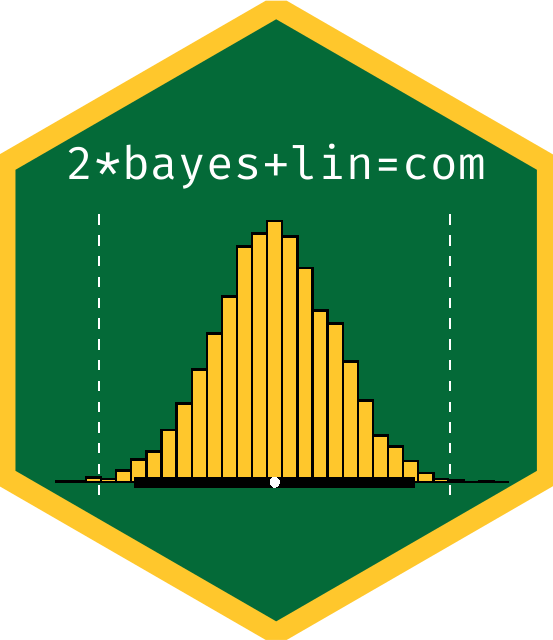
The goal of {bayeslincom} is to provide point estimates, standard deviations, and credible intervals for linear combinations of posterior samples. Additionally, it allows for testing against using null values using a region of practical equivalence (ROPE) approach.
ICCier: Computes ICCs, per person, or per observation, using the Bayesian mixed effects location scale model
The goal of {ICCier} it to compute intraclass correlations (reliability) in general (classic ICC), per person, or per observation within persons. This is accomplished with novel methodology that is based on the mixed-effects location scale model. This allows for fitting explanatory models to the true score (between-group) and error (within-group) variance– thereby opening the door to explaining reliability.
psychmetadata: Open Datasets from Meta-analyses in Psychology
This data package provides open datasets from meta-analyses from different areas in psychological science.